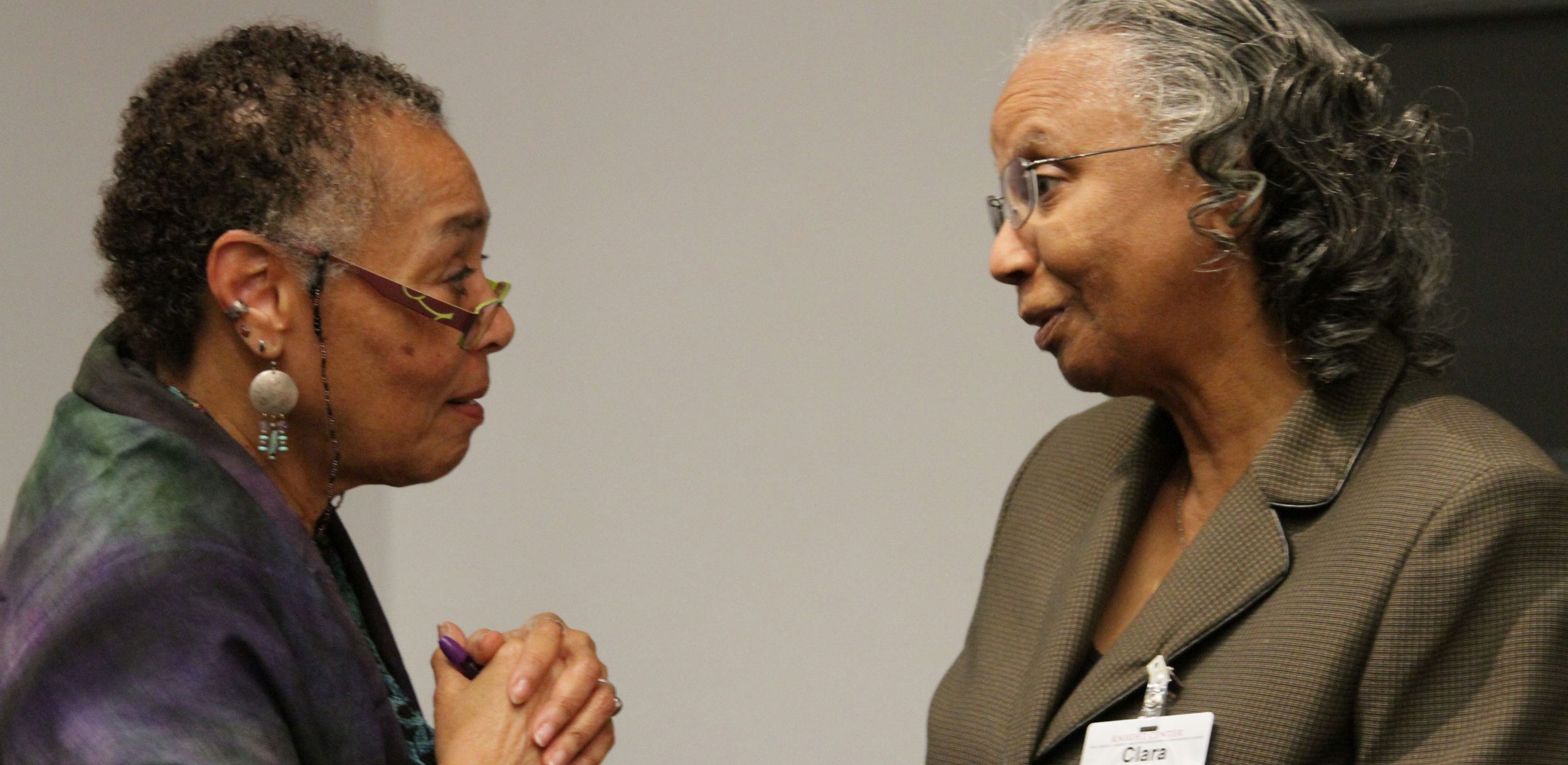Judy Richardson Personal Papers

Henry Hampton’s film production company Blackside not only produced many award-winning documentary series but was also a place to foster the next generation of great documentary filmmakers. Judy Richardson was a Blackside alum who went on to make her mark as a film producer, editor, and lecturer.
When Richardson came to work with Henry Hampton in the late 1970s on an early version of Eyes on the Prize she brought a wealth of experience and knowledge to the production. Richardson attended Swarthmore College and became politically active there and eventually joined the Student Nonviolent Coordinating Committee (SNCC). She worked in the SNCC offices in Atlanta, Georgia where she met and worked alongside James Forman and Julian Bond. She was involved with many of the major campaigns of the civil rights movement including Freedom Summer and SNCC’s efforts to register African Americans to vote in Lowndes County, Alabama.
Richardson began working with Hampton as a series researcher and content advisor for Eyes on the Prize I. Her first-hand knowledge of the events and people of the series combined with her research and producing skills helped make Eyes on the Prize a huge success. She continued working for Blackside as an Associate Producer for Eyes on the Prize II and then as a co-producer for Malcolm X: Make It Plain (Blackside/ROJA Productions).
After working at Blackside, Richardson went on to make her own films with Northern Lights Productions, including the 2008 documentary Scarred Justice: The Orangeburg Massacre (1968). This film brings to light a violent incident from 1968 in Orangeburg, South Carolina, where, during an attempt by students to integrate the All-Star Bowling Lane, South Carolina Highway Patrol officers shot into a crowd of protesters. Three African-American men were killed and at least thirty-one people were treated for injuries after the event.
Another facet of Richardson’s work at Northern Lights Productions is museum exhibits and installations. She created an exhibit for the National Park Service’s Little Rock Nine Visitor’s Center, the National Underground Railroad Freedom Center (Cincinnati), the New York State Historical Society’s “Slavery in New York” exhibit, and the Paul Laurence Dunbar House (Dayton) (Source: The History Makers).
Richardson’s work extends beyond film into other projects. She co-edited Hands on the Freedom Plow: Personal Accounts By Women in SNCC, an anthology that gathers together the stories of women in the Student Nonviolent Coordinating Committee. Richardson is a member of the Student Nonviolent Coordinating Committee (SNCC) Legacy Project (SLP) and works to preserve and educate people on SNCC’s legacy.
Richardson is also a lively and exciting speaker who conducts workshops for teachers on how to teach the civil rights movement. The Henry Hampton Collection at the Film & Media Archive contains the films by Blackside and a detailed and extensive record of the filmmakers’ process. The Judy Richardson Personal Papers’ correspondence, research notes, and producer’s files are an important and vital part of that history.
Contact
- Department
- Library
- Name
- Andy Uhrich
- Job Title
- Curator of Film and Media
- Email Address
- jauhrich@wustl.edu
- Phone Number
- (314) 935-3301
